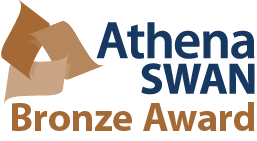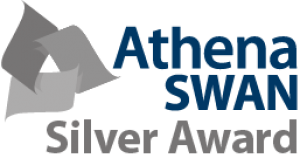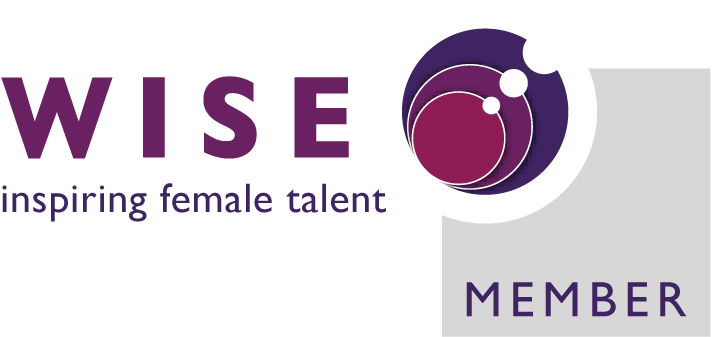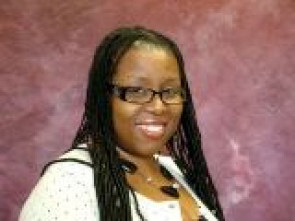You are here
- Home
- Miss Janice Ansine
Miss Janice Ansine
Professional biography
As Senior Project Manager – Citizen Science at The Open University (OU) I manage projects that use innovative, easily accessible web-based tools and resources to engage and help anyone participate and learn about science, including the award winning iSpot (www.iSpotnature.org) and Treezilla, the monster map of trees (www.treezilla.org).
An experienced STEM and environmental science communicator, I disseminate and share best practice supporting the STEM Faculty's and University's citizen science, engagement, impact and related strategic activities. My responsibilities also include supporting citizen science in teaching, wider OU public engagement, communications, outreach and open science initiatives (see: www.opensciencelab.ac.uk).
I hold a B.A. (Hons) and Diploma (Hons) in Media and Communication (UWI, Jamaica), an MSc in Environmental Change & Management (Oxford), an MSc in Science & Society (OU) and I am currently completing a Doctorate in Education (EdD) in Technology Enhanced Learning (OU).
I am a former environmental reporter, communications consultant, Reuter Fellow, Chevening Scholar - UNEP-WCMC Research in Biodiversity / Visiting Scholar (Cambridge). This varied experience has developed into a wide-ranging background leading communications, public engagement, outreach and behaviour change initiatives around sustainability and the environment. I also have project management certification and training in management coaching.
I am a highly skilled project manager having successfully merged my wide-ranging qualifications, skills, interests and experience to deliver an extensive portfolio of work. Through my role I have contributed to the growth and success of citizen science at the OU managing and / or contributing to a number of initiatives funded by multiple funders, relationships across a range of partners, research teams and coordinating delivery across different units / departments, organisations and stakeholders.
I coordinate the OU team’s delivery in Cos4Cloud and lead WP6 (Networking, Training, Education and Capacity Building) managing work facilitating evidence-based knowledge exchange, learning and engagement around citizen science. I also coordinate collaborative working between partners with core responsibilities for these areas. As Researcher Co-I for the Human-computer collaborative learning in citizen science project I am contributing iSpot related research in school-based citizen science learning about pollination. As Co-I on DECIDE I am codesigning stakeholder engagement approaches with iSpot end users.
Also while coordinating Treezilla project delivery, I am a Co-I on the recently funded Branching Out project contributing to the development of approaches which engage and make connections between communities, citizens and other stakeholders in understanding the value of treescapes. I also support relationships working across a number of partners and stakeholders i.e. contributing to the successful delivery of a standardised framework to collate tree data.
Current projects include:
|
|
|
|
Research interests
Over the years through my research interests I have contributed knowledge exploring the use and impact of blended approaches i.e. online tools communications, multimedia, etc.; implemented alongside informal and formal learning (Ansine, 2013). I have contributed to OU research in crowdsourcing biological identification in citizen science (Silvertown et al, 2015), technology enhanced learning and teaching focused on the use of mobile technology in citizen science to facilitate practical STEM learning (Woods et al, 2017). I lead research on how online citizen science supports teaching and learning, identifying a five-step framework from participation to recognised learning actions: explore, identify, contribute, personalise and recognition (Ansine et al 2017). I also contribute to evolving areas in citizen science practice and research i.e. citizen science and artificial intelligence: https://citsci.kmi.open.ac.uk . At the OU I also share citizen science best practice a member of research groups: i.e. Open Technology Enhanced Learning (TEL) and Citizen Inquiry and Ecosystem Science.
My research experience includes environmental change and ecological footprinting, biodiversity communications, sustainable development and science communications. This is built on earlier work as an environment newspaper reporter iand Reuter Fellow researching the ecological impacts of Jamaica’s tourism in Jamaica (MSc, Oxford, 2000). I explored biodiversity and human development themes and led a communications campaign and strategic project (including a series of posters and fact sheets) complementing UNEP WCMC work on the Convention on Biological Diversity as a Chevening Scholar and Visiting Research (Cambridge, 2003). As a British Council Darwin Now Awardee (2009) I implemented a research project focused on public outreach and engagement on biodiversity and Charles Darwin’s legacy expressed through Jamaican arts and culture.
I also explore relationships between citizen science and science communication analysing initiatives that use a combination of tools for engagement, public participation and understanding of science and building on this contributed to a successful initiative connecting young people with researchers in a school-university partnership initiative (Holliman, 2018). All of these These interests shape my ongoing research investigating participation in citizen observatories and online communities of practice, while contributing ideas and developing engagement approaches for a range of citizen science initiatives.
I am interested in research around citizen science and learning (including arts-based engagement and culture). As well as public involvement and engagement with science and nature supported by blended approaches incorporating online tools, multimedia, engagement, citizen science, informal and formal learning around biodiversity. While working, I am pursuing my Doctorate in Education (EdD) with the Centre for Research in Education and Educational Technology (CREET), at the OU, in the area of Technology Enhanced Learning. My current research topic focuses on Exploring Citizen Science Learning Journeys: a case study of iSpotnature.org.
See more research publications in Open Research Online here:https://oro.open.ac.uk/view/person/ja4865.html.
Teaching interests
I contribute to citizen science teaching and informal learning, for example I am co-author of Citizen Science & Global Biodiversity, an OU OpenLearn Badged Open Course: www.open.ac.uk/citizen-science-and-global-biodiversity.
Impact and engagement
As an experienced citizen science practitioner and researcher, I collaborate, codesign, co-create and share my expertise nationally and internationally. I coordinate iSpot’s involvement in national policy investigations in biodiversity (e.g. pollination monitoring and the State of Nature Report). I am a founding member of the UK Tree Health Citizen Science Network (THCSN) and contribute to knowledge exchange. I was a contributor to the European Citizen Science Association (ECSA) 10 principles of citizen science (Robinson, et al, 2018) and currently chair the Sharing Best Practices and Capacity Building Working Group.
I share my skills and expertise sitting on various research project steering group / committees e.g. I sit on the project advisory board of REINFORCE: Research Infrastructures FOR Citizens in Europe project (www.reinforceeu.eu/ and was also a member of the Citizen Science Cost Action CA15212 As a member of the Citizen Science Association (https://citizenscience.org ) I collaborate and network with a range of stakeholders internationally. I am impacting on informal and formal school and university STEM learning in Africa, as part of an innovative project integrating OU Virtual Lab technology in STEM teaching in Ghana.
I have an excellent understanding of how to inform and engage diverse communities to participate and encourage further understanding and engagement in environmental matters. For example, I developed and led implementation of public outreach and engagement programme with a focus on engaging with ‘hard to reach’ groups’. I managed delivery through a UK-wide team of 13 iSpot Biodiversity Mentors the programme reaching over 80,000 beneficiaries, overachieving on targets set.
I was an advisor on the UKRI funded Opening Up Science for all project and lead the OU’s contribution to the NERC Community for Engaging Environments project providing expertise on citizen science as a Critical Friend. NC4EE is using a range of approaches combining community development, storytelling and citizen science, to enable communities across the UK to have a meaningful stake in discussing and tackling environmental science issues such as climate change and pollution. The OU is one of over 30 partners including universities and other organisations collaborating with diverse communities on issues in environmental science.
I am also one of the OU representatives supporting Citizen:MK as part of an ongoing response on climate and environmental action, didital inclusion and misogyny as a hate crime.
Externally funded projects
Walking the Walk: Co-producing approaches to diversifying participation in Earth and environmental science education and careers
| Role | Start date | End date | Funding source |
|---|---|---|---|
| Co-investigator | 01 Dec 2021 | 30 Jun 2022 | NERC Natural Environment Research Council |
For many people working in the environmental sciences today, the first spark of interest in the field came from experiences in nature. Whether walking, hiking or visiting the coast, immersion in the natural world can often plant the seeds of curiosity that lead to a lifelong desire to know more about how and why it works. In the UK, much of the natural “the countryside” is perceived as an overwhelmingly “white” space, hostile to people from non-white backgrounds. Not only does this mean that for many that seed is never planted, but the lack of familiarity with experiences in “the outdoors” means the fieldwork seen as necessary for an environmental education (and commonly required for accredited degree programs) presents a barrier to degree level study. This is a major problem for the field, as environmental impacts such as those driven by climate change affect everyone. Financial, cultural and opportunity barrier to accessing the outdoors, are recognised by both environmental organisations and grassroots groups. This project will bring together environmental scientists and grassroot community groups to tackle barriers in order to make outdoor learning accessible to all. We will test approaches to bring environmental science learning directly to those trying to make the UK countryside a more inclusive environment and learn from the experiences of both environmental scientists and activist groups in spending time immersed in nature. | |||
Publications
Journal articles
Co-Constructing “Third Spaces” for Engagement with and for Minoritized Community Groups and Environmental Scientists (2024-08-20)
Holliman, R.; Ludhra, G.; Warren, C. J.; Khatwa, A.; Araya, Y.; Smith, K.; Ansine, J. and Badger, M. P. S.
Earth Science, Systems and Society, 4, Article 10119
Updating Species Dictionaries in the Citizen Science Platform iSpotnature.org with the Help of Its User Community and ChecklistBank (2024)
Dodd, Michael; Döring, Markus; Valentine, Chris; Siddharthan, Advaith and Ansine, Janice
Biodiversity Information Science and Standards, 8, Article e135236.
Differences between urban and rural hedges in England revealed by a citizen science project (2016-07-22)
Gosling, Laura; Sparks, Tim H.; Araya, Yoseph; Harvey, Martin and Ansine, Janice
BMC Ecology, 16, Article 15(1) (pp. 45-55)
Crowdsourcing the identification of organisms: a case-study of iSpot (2015-02-02)
Silvertown, Jonathan; Harvey, Martin; Greenwood, Richard; Dodd, Michael; Rosewell, Jonathan; Rebelo, Tony; Ansine, Janice and McConway, Kevin
ZooKeys, 480 (pp. 125-146)
Book chapters
Ten Principles of Citizen Science (2018-10-15)
Robinson, Lucy,.D.; Cawthray-Syms, Jade, L; West, Sarah, E; Bonn, Aletta and Ansine, Janice
In: Hecker, Susanne; Haklay, Muki; Bowser, Anne; Mukuch, Zen; Vogel, Johannes and Bonn, Aletta eds. Citizen Science: Innovation in Open Science, Society and Policy (pp. 27-40)
ISBN : 9781787352339 | Publisher : UCL Press
Exploring citizen science and inquiry learning through iSpotnature.org (2017-09-19)
Ansine, Janice; Dodd, Michael; Robinson, David and McAndrew, Patrick
In: Herodotou, Christothea; Scanlon, Eileen and Sharples, Mike eds. Citizen Inquiry: Synthesising citizen science and inquiry learning (pp. 83-103)
ISBN : 9781138208698 | Publisher : Routledge | Published : Oxford
Supporting Mobile Learning and Citizen Science Through iSpot (2015-12-25)
Woods, Will; McLeod, Kevin and Ansine, Janice
In: Crompton, Helen and Traxler, John eds. Mobile Learning and STEM: Case Studies in Practice (pp. 69-86)
ISBN : 9781138817036 | Publisher : Routledge | Published : Abingdon
Reaching the public through iSpot: your place to share nature (Case Study 8.5) (2012-11)
Ansine, Janice
In: Bowater, Laura and Yeoman, Kay eds. Science Communication: A Practical Guide for Scientists (pp. 257-259)
ISBN : 978-1-119-99313-1 | Publisher : Wiley Blackwell | Published : Oxford
Conference items
Exploring taxonomic and geographic spread of iSpot citizen science observations (2023-11-23)
Dodd, Michael; Valentine, Chris and Ansine, Janice
In : National Biodiversity Network (NBN) Conference 2023 (23 Nov 2023, National Museums Scotland, Edinburgh)
iSpot & AI: Integrating FASTCAT-Cloud and PI@ntNET-API in the Cos4Cloud framework (2023-06-30)
Ansine, Janice; Dodd, Michael; Valentine, Chris; Rüger, Stefan; Siddharthan, Advaith and Dadswell, Damian
In : Computers and Learning Research Group (CALRG) Conference 2023 (27-30 Jun 2023, Online)
Citizen science: a holistic approach to practice: connecting research, teaching, learning and engagement (2023-05-25)
Ansine, Janice
In : Royal Society of Biology Plant Health Conference 2023 (25 May 2023, Online)
Exploring perspectives of minoritized community walking group leaders to make access to nature more equitable, diverse and inclusive (2023-04-14)
Holliman, Richard; Smith, Kelly; Khatwa, Anjana; Warren, Clare; Araya, Yoseph; Ansine, Janice and Badger, Marcus
In : International PCST Conference : Creating Common Ground (11-14 Apr 2023, Rotterdam)
Citizen science at the Open University, UK: A holistic approach connecting research, teaching, learning and engagement (2022-12-05)
Ansine, Janice and Araya, Yoseph
In : UK-China Conference on the Development of Science Literacy for All (05 Dec 2022, Shanghai, China and Online)
Practice-based insights from UK collaboration projects between a university and communities: ideas for school-based learning through citizen science (2021-08)
Ansine, Janice
In : Citizen science and basic education: how to develop a project with schools’ engagement in scientific research? (11 Aug 2021, Online Workshop)
Exploring citizen science learning journeys through iSpotnature.org: an online community of nature lovers (2021-05-03)
Ansine, Janice
In : CitSci Virtual 2021, Citizen Science Association (CSA) Conference (03-27 May 2021, Online (USA))
NBN 2020 Conference: iSpot Autumn BioBlitz results and iSpot update on projects and future plans (2020-11-18)
Ansine, Janice and Dodd, Mike
In : 20th National Biodiversity Network Conference (18 Nov 2020, Online)
Developing online citizen science learning communities: from dabblers to super users (2020-09)
Ansine, Janice
In : Third international ECSA conference 2020: Encounters in citizen science (6-11 Sep 2020, Online)
OpenSTEM Africa: Strengthening science education in Ghana (2020)
Murphy, Kerry; Cullen, Jane; Addae-Kyeremeh, Eric; Stutchbury, Kris; Velasco, Maria; Davies, Sarah-Jane; Ansine, Janice; Herman, Clem; Biard, Olivier and Mallet, Joshua
In : The 9th eSTEeM Annual Conference: Informing Student Success – From Scholarship to Practice (29-30 Apr 2020, The Open University, Milton Keynes, UK)
iSpotnature.org: building and maintaining a citizen science community for biodiversity (2018-11-21)
Ansine, Janice and Dodd, Michael
In : 18th National Biodiversity Network (NBN) Conference (21-22 Nov 2018, Nottingham, UK)
iSpot: a citizen science platform for inclusive learning and teaching (2018-06-03)
Ansine, Janice; Araya, Yoseph; Dodd, Michael and Robinson, David
In : European Citizen Science Association (ECSA) Conference 2018 (3-5 Jun 2018, Geneva, Switzerland)
Using a citizen science tool to model the health benefits of roadside trees (2017)
Goodenough, Jessica; Ansine, Janice and Wheeler, Philip
In : Trees, People and the Built Environment 3 (TPBE3) Conference (5-6 Apr 2017, University of Birmingham)
Other
Co-constructing ‘third spaces’ for engagement between minoritized community groups and environmental scientists (2024-02-27)
Holliman, Richard; Ludhra, Geeta; Warren, Clare J.; Khatwa, Anjana; Araya, Yoseph; Smith, Kelly; Ansine, Janice and Badger, Marcus P.S.
EarthArXiv
Individual Tree Data Standard (2021-10-14)
Handley, Phillip; Walker, Hannah; Ansine, Janice; Baden, Richard; Craig, Ian; Dewhurst-Richman, Nadia; Doick, Kieron; Fay, Luke; Mackie, Ewan; Parratt, Matt; Perez-Sierra, Ana; Sparrow, Kate and Wheeler, Philip
Forest Research, the Research Agency of the Forestry Commission, Farnham, UK.
Engaging Opportunities: Connecting young people with contemporary research and researchers (2018-02-01)
Holliman, Richard; Davies, Gareth; Ford, Diane; Russell, Mark; Steed, Anthony; Brown, Helen; Pearson, Victoria; Collins, Trevor; Stutchbury, Kris; Squires, Andrew; Scanlon, Eileen; Whitelegg, Liz; Ansine, Janice; Braithwaite, N St.J; Swithenby, Stephen; Dommett, Ellie; Sumner, Janet; Lee, Clare; Kendall, Joe; Green, Penny; Sharp, Damien; Bullivant, Mike; Devine, Peter and Hawthorne, Val
The Open University and the Denbigh Teaching School Alliance, Milton Keynes.




